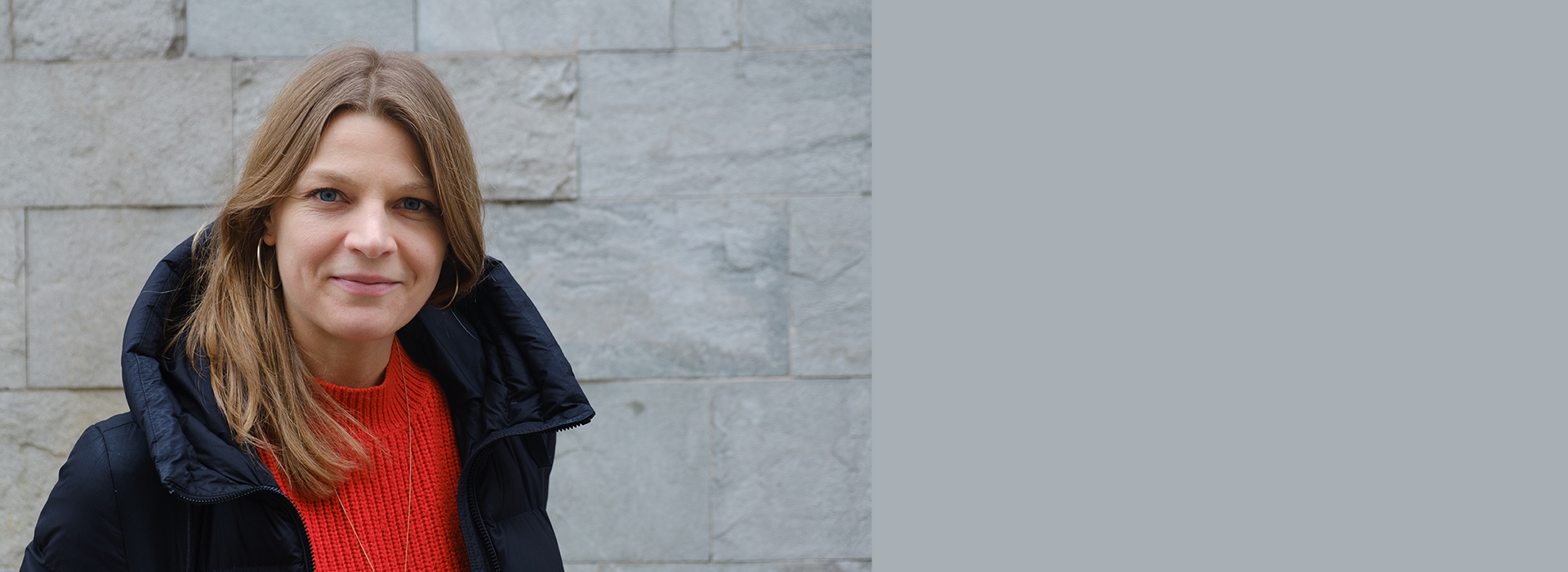A PORTRAIT OF DIRECTOR BARBARA OTT
Barbara Ott © Peter MatjaskoIt speaks volumes when a graduation film wins both the German Short Film Award in Gold and the First Steps Award, more festival outings than space allows and is still used as a study aid, but that is Barbara Ott’s SUNNY. Her 2013 short, the story of a young, unemployed father trying to take care of his child, set the scene and tone for a young filmmaker very much in the social realism mould of Ken Loach and others.
Born in 1983 in “a very agricultural corner of southern Germany,” Barbara Ott, “was always fascinated by theater, especially direction: I kept wanting to make the actors better!” She gained her first set internship in Munich, getting hands on with all things theatrical, before making a short and getting into the Filmakademie Baden-Württemberg in 2013 where she studied feature film making: “I did it the classical way!” she says.
SUNNY won her not only plaudits but those all-mportant “grants and commissions, especially writing ones” that got her to her first feature, KIDS RUN, for the prestigious ZDF “Das kleine Fernsehspiel” slot. Here she thanks ZDF’s Burkhard Althoff and Gabriele Simon and Martin Heisler, her producers at Flare Film, “for their very close confidence and cooperation.”
”It’s the story of a young, aggressive father, a day-worker,” Barbara Ott explains. “He fights with life to earn money, fights for the love of his ex. It’s the fight of stigmatised people against prejudice, driven by love.” She continues: “The voices and souls of the people I portray are often on the edge of society, falling through the gaps, stamped already as children, I want to tell their stories to show we are all alike. It’s a strong force that drives me: family stories, parent/child stories. I am writing to work out experiences, of course, portraying maybe friends from kindergarten, stigmatised due to their origin. That touched me even as a five-year-old. You gotta fight for justice!”
The only filmmaker in a family of “all solid people! Physicist, engineer and so on, but also creative thinkers,” Barbara Ott is character driven. “I slip into the figure,“ she explains her writing style, ”into the adult and child, scene by scene. Sometimes I put on headphones and don’t listen to anything! I don’t have actors in mind but clear images of the people, then I ask who can best play them, and here I have been very lucky.”
She is very much the team-player too: “We meet, we talk a lot about the role, openness is very important. The text must be spoken in the way the actors do it best, they need a certain freedom. I direct 360°, lighting to match. They are welcome to improv,“ Barbara expands, “but you have to see where it goes. Sometimes it does land in the film.”
She cites DOP Falko Lachmund, Ben Bischof 1st AD, editor Gregory Schuchmann and costumier Tina Eckhoff as “My core team. You can make a film only in team, I couldn’t do it otherwise.” Among her many influences, film makers and films, are “the Dardenne Brothers, Andrea Arnold, Alice Rohrwacher, RUST AND BONE, BEAUTIFUL, PROPHET is crazily great, all classic filmmaking in the sense.”
Now settled in Berlin, a working mother with two young children – “They give me structure, lots and lots of strength and so much creative force that goes into the script, so much incredible and unconditional love, as well as responsibility” – Barbara Ott is currently “working on pre-production for a feature, a commission, not written by me, and also my next film, again a father and son story, from the son’s viewpoint. There is also a series coming out on which I’m directing four episodes. DEADLINES, about four very strong women who meet again in their mid-30s. It’s a dark comedy.”
Outside of work, Barbara Ott enjoys her “friends, sport, family time, I live a very normal life. I’m looking forward to travelling again with the kids, doing sports with them, tennis, surfing, skiing, snowboarding. You know, active mum stuff!”
Her message for these ’interesting’ times? “Streaming is here and now,” Barbara Ott says, “but it does not mean the death of cinema. We have to keep all the ways of communication open. Go there, watch the smallest, most difficult films! Support the artists! They must have an audience and it must be encouraged. People want and need culture. No culture would make life not worth living. People want to go out, meet friends, and cinema and theater are still the fires we sit around.”
Simon Kingsley

